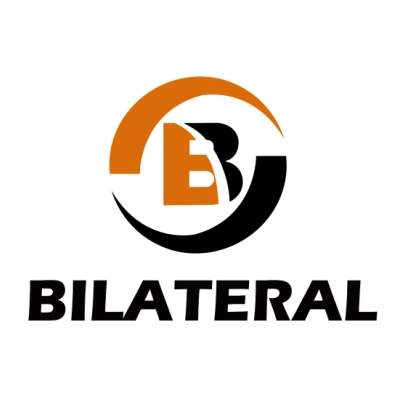
Why Do Riveting Nuts Need Locking?
Riveting nuts, also known as press-fit or clinch nuts, are commonly used in sheet metal assemblies, electronics, and mechanical systems. Installed in thin materials, they require reliable fastening to avoid loosening due to vibration or thermal cycling.
Locking nuts provide an effective anti-loosening solution and come in two main types:
- Metal locking nuts
- Nylon locking nuts
This article compares the two in terms of performance, torque, cost, and applications.
Overview of Locking Nut Types
Metal Locking Nuts
Metal locking nuts rely on friction or deformation to resist loosening. Common types include:
- Spring washer combinations
- Serrated flange locking nuts
- All-metal prevailing torque nuts
- Double nut (jam nut) setups
Nylon Locking Nuts
These nuts contain a nylon ring inserted at the top of the thread. The nylon deforms during tightening, creating friction that resists loosening due to vibration.
Torque Differences:Metal Locking Nuts Require Higher Torque
Metal Locking Nuts
- Require greater preload torque to engage locking features
- May deform thin metal or damage riveting nuts if overtightened
- Require precise torque control using torque wrenches
Nylon locking nuts:
- Provide strong friction at lower torque
- Are ideal for soft materials or lightweight assemblies
- Allow safer installation without risk of overtightening

Performance Comparison
| Feature | Metal Lock Nut | Nylon Lock Nut |
|---|---|---|
| Anti-Loosening | ✅ Excellent (ideal for vibration) | ✅ Good (for light-medium loads) |
| Torque Requirement | ❗ High, requires precise control | ✅ Low, suitable for fast assembly |
| Heat Resistance | ✅ Up to 400°C or more | ❌ Max around 120°C |
| Reusability | ✅ High, maintains performance | ❌ Limited—nylon wears over time |
| Cost | ❌ Higher | ✅ Lower, cost-effective |
| Installation Speed | ❌ Slower (needs torque control) | ✅ Fast, ideal for automation |
| Corrosion Resistance | ✅ Excellent (stainless/zinc) | ✅ Good (with protective coating) |
Recommended Applications
| Application Scenario | Recommended Lock Nut Type |
|---|---|
| High-temp or high-vibration systems | Metal lock nuts (e.g., serrated flange) |
| Thin sheet metal or aluminum panels | Nylon lock nuts (low torque required) |
| Electronics, electrical enclosures | Nylon lock nuts (scratch-resistant) |
| Heavy-duty or structural assemblies | Metal lock nuts (vibration/impact-proof) |
| Parts requiring repeated disassembly | Metal lock nuts (durable and reusable) |
| Automated assembly lines | Nylon lock nuts (quick, efficient) |

Riveting Nut Locking Best Practices
- Ensure correct installation of the riveting nut; avoid off-center or loose seating.
- For critical joints, use combined locking methods:
- → Riveting Nut + Metal Lock Nut + Threadlocker (e.g., Loctite)
- Avoid exceeding the torque limit of the base material, especially on thin plates.
- For environments with temperature fluctuations or vibration, metal locking systems are preferred.
Conclusion: Metal or Nylon Lock Nut?
Both lock nut types have their strengths. When used with riveting nuts, the choice depends on specific needs:
Choose Metal Lock Nuts when:
- The environment involves high heat, heavy load, or vibration.
- Reusability and strong clamping force are required.
Precautions for Metal Lock Nuts:
| Item | Recommendation |
|---|---|
| Torque Control | Use torque wrench; avoid over-tightening |
| Thin/Soft Base Reinforcement | Use washers or select lower-torque nuts |
| Anti-Vibration | Combine with threadlocker or spring washers |
| Reusability Inspection | Check locking features for wear |
| Mixed Metals Corrosion | Choose proper coating or insulate surfaces |
| Thread Engagement | Minimum two full threads engaged |
| Installation Tools | Do not use impact tools; use torque tools |
Choose Nylon Lock Nuts when:
- Low torque, low-cost, and fast assembly are priorities.
- The structure is thin, lightweight, or sensitive to deformation.
Precautions for Nylon Lock Nuts:
| Item | Recommendation |
|---|---|
| Temperature Limit | Avoid use above 120°C |
| Installation Method | Manual or electric screwdriver is sufficient |
| Reuse Restriction | Not recommended after 1–2 uses |
| Avoid Lubricants | Do not apply oil or threadlocker |
| Compatibility | Ideal for riveting nuts on thin/light panels |
| Storage & Aging | Store in cool, dry, UV-free conditions |
| Thread Insertion Depth | Bolt must pass through the nylon ring fully |
Final Note:
When designing assemblies that use riveting nuts, always consider:
- Material strength
- Torque control precision
- Environmental conditions
- Disassembly and maintenance cycles
By evaluating these factors, you can select the optimal locking solution for both reliability and efficiency.
About us
Suzhou Bilateral lmport and Export Co., Ltd..established in 2007,is a high-quality manufacturer offasteners and solar modules that integrates researchand development, design, production, and sales.
Our factory covers an area of approximately 12000 square meters and currently employs more than 150 workers. The registered capital of the company is 3 million RMB, with an annual production capacity of 5 million pieces per month. The company specializes in producing fasteners, all of which aremade of high-quality stainless steel materials, such as SUS304,SUS316,SUS410,SUS420,SUS430,S32205,S32507,S32750(super stainless steel),INCOLOY925,INCONEL800,NICKEL ALLOY 200,etc.The company’s main products include stainless steel screws,nuts,bolts,dry wall screws,wood screws,chip board screws,self tapping screws, self drilling screws, mechanical screws,and can also provide special screws, bolts, blind rivets, nuts, washers, lathe parts,stamped parts,and various high-quality fasteners.




